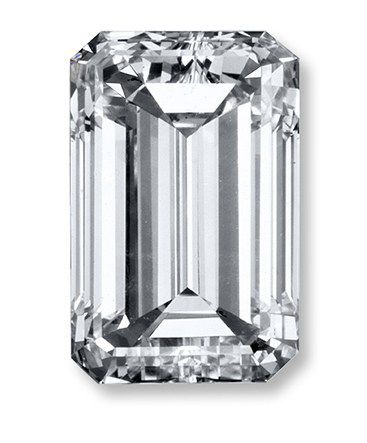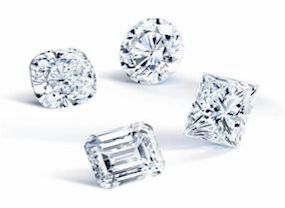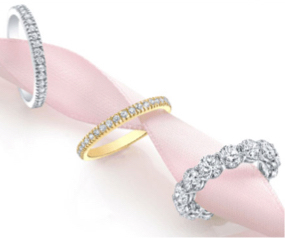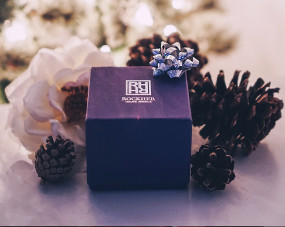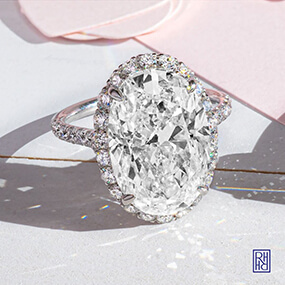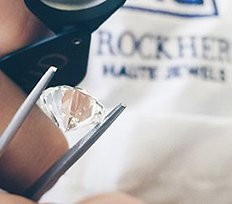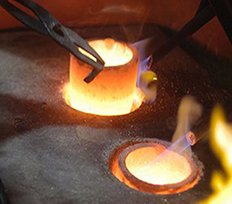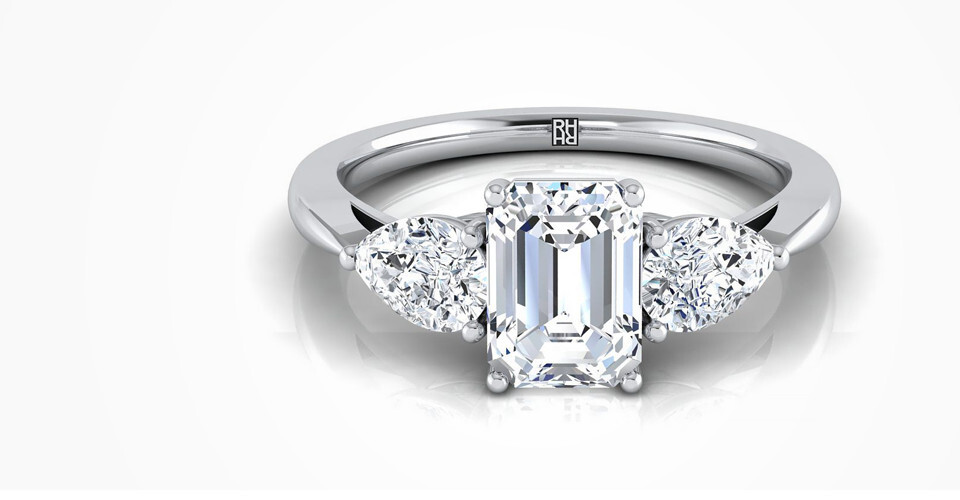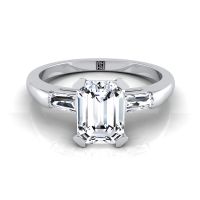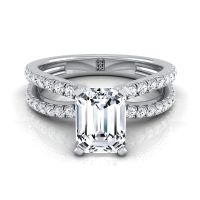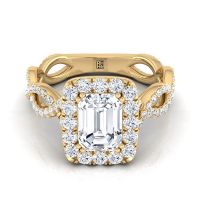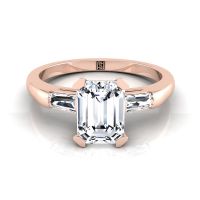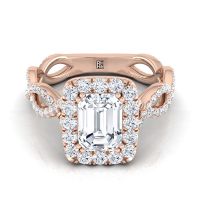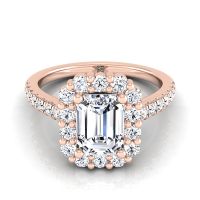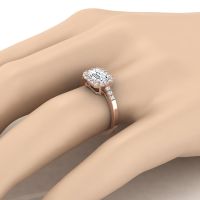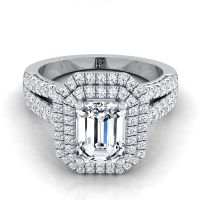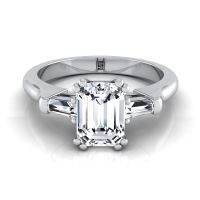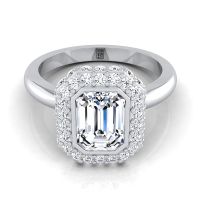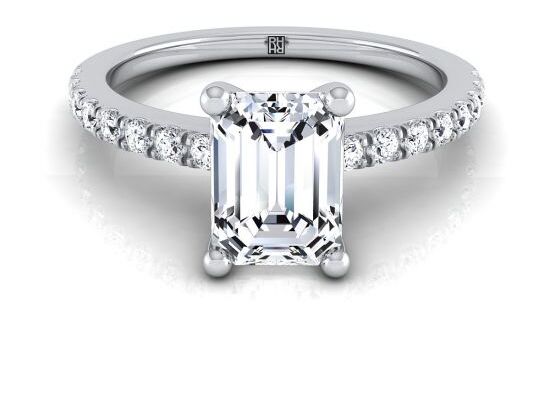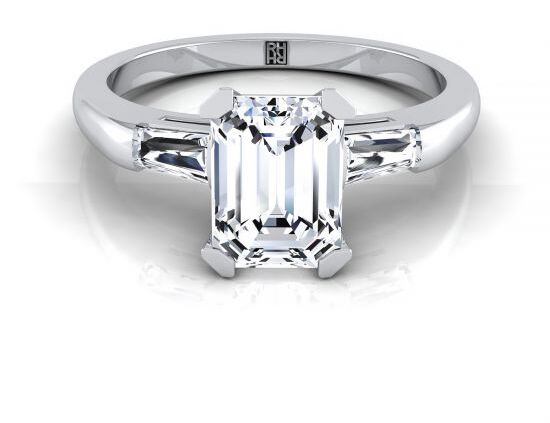
BUYER'S GUIDE TO EMERALD CUT DIAMONDS
streamlined modern design.

The emerald cut has a long and distinguished history: it’s based on the earliest faceted diamond shape called the table cut. In the 14th century, cutters discovered that they could use diamond dust to grind away the top point of a diamond crystal creating a flat table facet that allows you to see into the stone. Later they added a faceted culet on the bottom.
These early step cuts were refined over the centuries, becoming popular in Art Deco jewelry designs in the 1920s. Step cuts were particularly popular for emeralds because the beveled corners of the shape protect the corners against chipping while still providing bright flashes of color. The rectangular step cut, which suits the natural elongated shape of emerald crystals, became so closely associated with these green gems that it was named after them.
Emerald Cut Quality Checklist
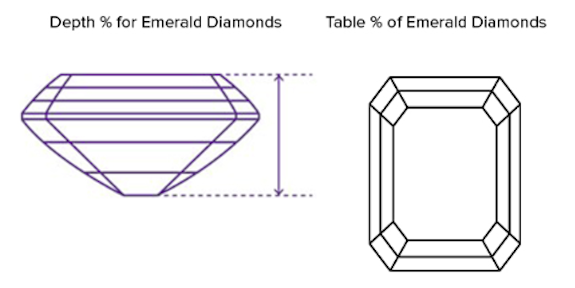
Although the quality factors used to evaluate emerald cut diamonds are the same as the 4Cs of round brilliant diamonds, you will probably want to make different choices when you are shopping for emerald cuts.
The factor that you’ll immediately notice first is the length to width ratio: a comparison of how
square or long the rectangle of the shape is. A ratio of 1 would be square and a ratio of 1.7 would
be long and skinny. Which you like best is a matter of personal taste but most people prefer
something in the middle.
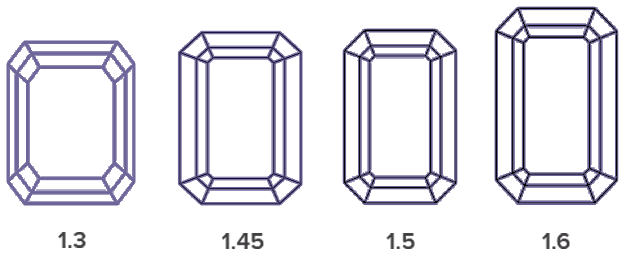
beauty of an emerald cut diamond than on
brilliant shapes
The large flashing facets that make emerald cut diamonds so appealing also highlight any inclusions inside the stone, lighting them up like they are under a spotlight. For this reason, you will want to make sure you choose an emerald cut diamond without a large inclusion in the center that will be reflected around the stone.
Unlike round brilliants, GIA does not offer cut grades for emerald cuts. The grades you see on the report are for polish and symmetry, not for proportions. Still the grades for polish and symmetry can give you an indication of the quality of the cutting.
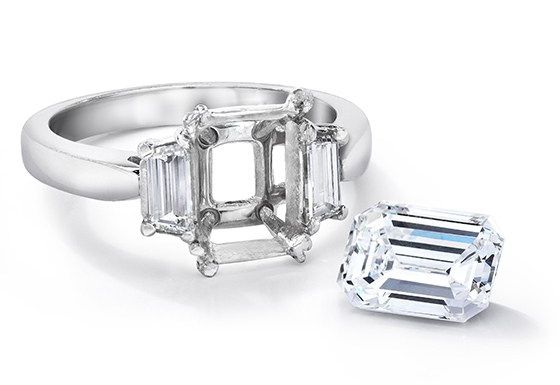
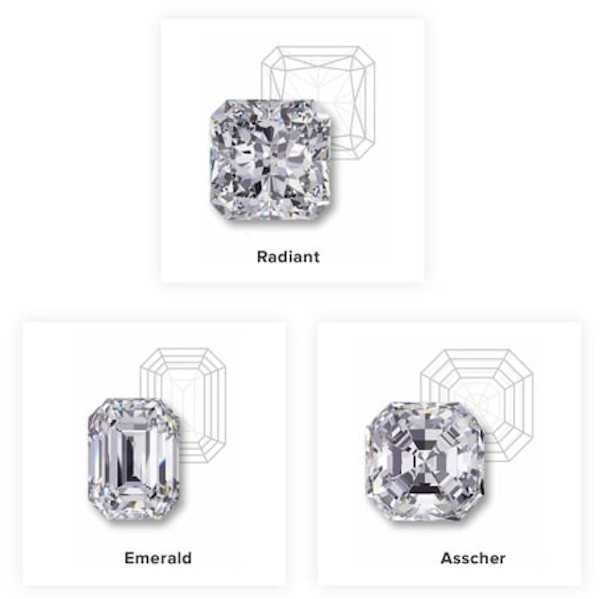
Like a round brilliant, cut quality of the emerald cut depends on its angles and proportions. Large depth and table percentage ranges will include combinations that work well together and combinations that don’t. ROSI eliminates all diamonds that are outside of 58-75 depth percentage and 56-75 table percentage and then chooses combinations of proportions that provide the brightest possible gem.
ROSI generally recommends a depth percentage between 61 to 68, which is the best balance between brilliance and size (the less depth, the larger your emerald cut diamond will appear.) ROSI usually recommends a table percentage of 60-69. ROSI always recommends very good to excellent polish and a very good to excellent symmetry, which together indicate a well-crafted diamond.
The distinctive long and large facets of the emerald cut diamond make it easy to love. You’ll often read that an emerald cut has “less brilliance” but this isn't really accurate. The larger facets of an emerald cut return brighter and larger reflections of light back to your eyes: it’s a different optical effect than the smaller but more numerous reflections in a brilliant cut.
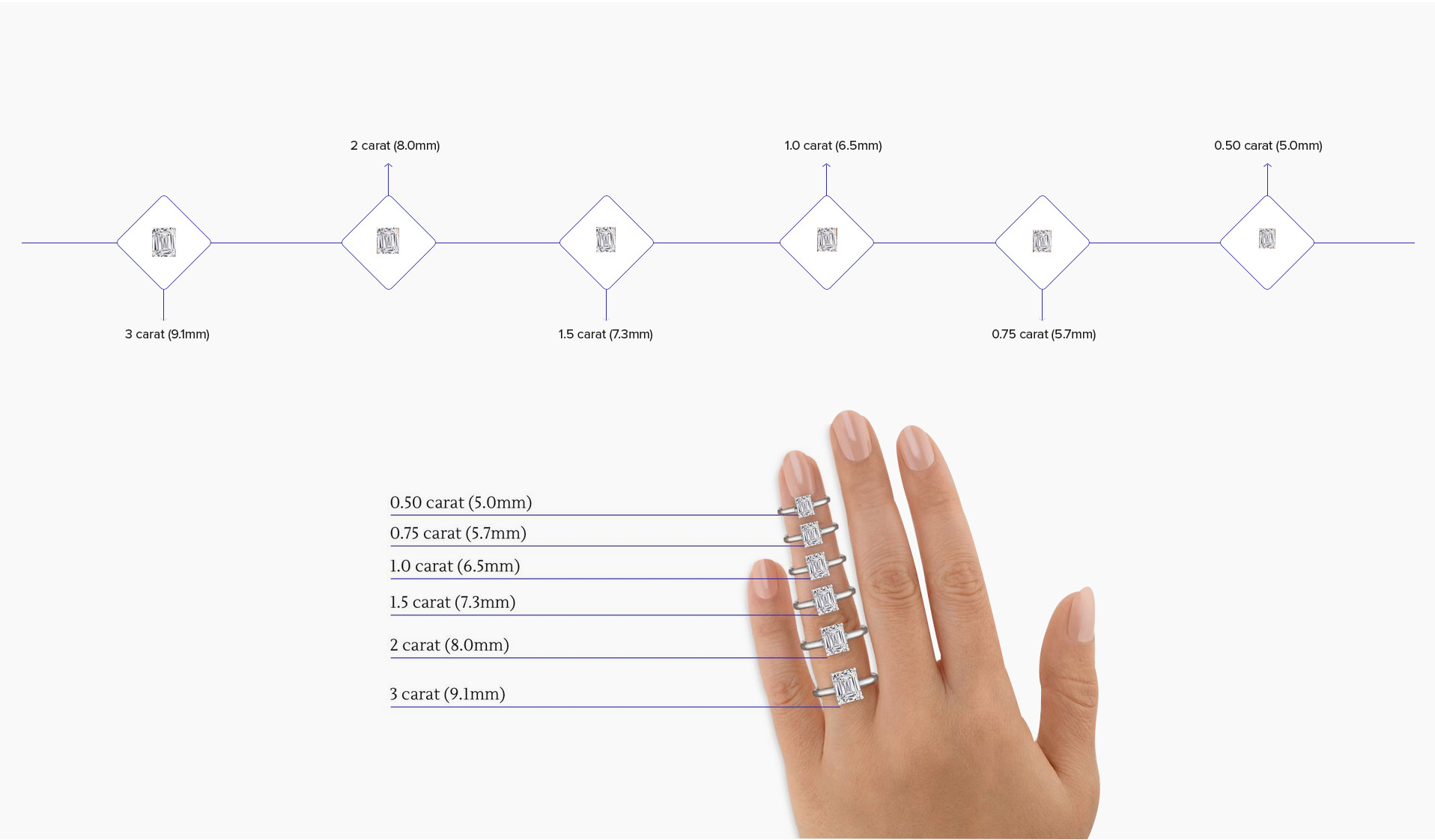
Our customer’s favorite setting for an emerald cut engagement ring is a refined emerald cut solitaire with a pave band. For something a bit more intricate, an emerald cut halo engagement ring has extra detail (and extra diamonds.). Because this cut is sleek and minimal, many brides also choose a simple solitaire: a bezel set emerald cut engagement ring is particularly sleek. Three stone styles are also popular, especially an emerald cut engagement ring with tapered baguettes on each side, which is the style of the famous Jennifer Lopez emerald cut ring.
We programmed ROSI, an artificial intelligence powered by IBM’s Watson, to comb through all the emerald cuts available on the market to find the best balance of quality and value for your budget. See the best emerald cut diamond for your budget.
ROSI generally recommends a color of H for an emerald cut diamond: the flashing facets will still look almost colorless. Clarity should be at least SI1 (or better whenever possible.) The most visible factor in the appearance of your emerald cut is the length to width ratio. ROSI recommends a ratio of 1.3 to 1.5, which gives you a pleasing rectangular shape.
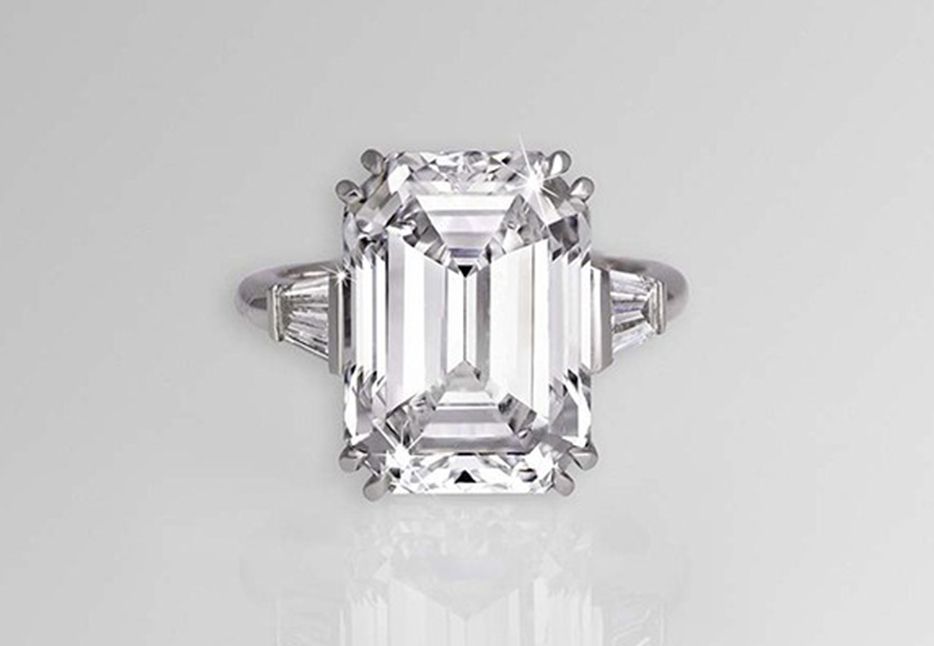
effect: the facets reflect each other across the pavilion of the stone.
When you turn the diamond, you’ll see the entire gem flash with light. A well-proportioned emerald cut diamond is undeniably stunning.
An emerald cut diamond also appears about 5% larger than a round brilliant diamond of the same carat weight because it is shallower in depth. In addition, the elongated proportions of the emerald cut also fool the eye into thinking the taller shape is larger than a round. That is also why large emerald cut diamond engagement rings like the 18-carat gem Beyonce received from Jay Z or the 16-carat emerald cut diamond Jennifer Lopez received from A-Rod look so large.
